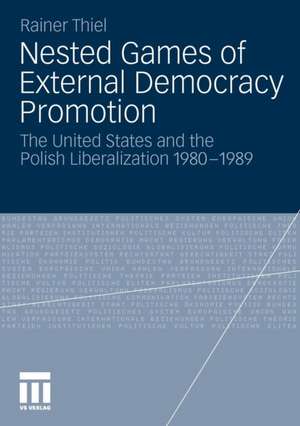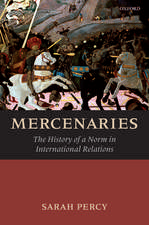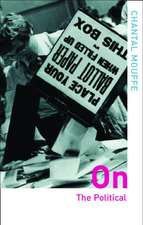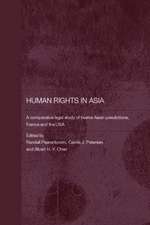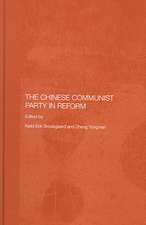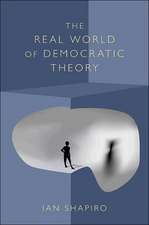Nested Games of External Democracy Promotion: The United States and the Polish Liberalization 1980-1989
Autor Rainer Thielen Limba Engleză Paperback – 28 sep 2010
Preț: 386.81 lei
Nou
Puncte Express: 580
Preț estimativ în valută:
74.03€ • 76.99$ • 61.95£
74.03€ • 76.99$ • 61.95£
Carte tipărită la comandă
Livrare economică 14-28 martie
Preluare comenzi: 021 569.72.76
Specificații
ISBN-13: 9783531177694
ISBN-10: 3531177699
Pagini: 318
Ilustrații: 318 p. 13 illus.
Dimensiuni: 148 x 210 x 20 mm
Greutate: 0.39 kg
Ediția:2010
Editura: VS Verlag für Sozialwissenschaften
Colecția VS Verlag für Sozialwissenschaften
Locul publicării:Wiesbaden, Germany
ISBN-10: 3531177699
Pagini: 318
Ilustrații: 318 p. 13 illus.
Dimensiuni: 148 x 210 x 20 mm
Greutate: 0.39 kg
Ediția:2010
Editura: VS Verlag für Sozialwissenschaften
Colecția VS Verlag für Sozialwissenschaften
Locul publicării:Wiesbaden, Germany
Public țintă
ResearchCuprins
Regime Transitions and External Democracy Promotion.- The International Dimension of Regime Change.- Strategic Transitions.- Nested Games of External Influence on Strategic Regime Transition.- Methodology.- U.S. Democracy Assistance in the Polish Liberalization Process, 1980-1989.- Correspondence between Theory and Facts.- Conclusion.
Notă biografică
Dr. Rainer Thiel received his PhD from Freie Universität Berlin and is currently a Research Consultant at empirica Communication and Technology Research in Bonn.
Textul de pe ultima copertă
Nested Games of External Democracy Promotion develops a game theoretic model that explains how an external actor influences the strategic interaction between an authoritarian regime and a democratic opposition. In a multiple arena approach, the confrontation between regime and opposition on the domestic level is nested inside a game on the international level, at which the regime is simultaneously entangled with a democracy promotion actor. As a case study, the book formally reconstructs how United States democracy assistance influenced the Polish liberalization process between 1980 and 1989. The process tracing of its causal mechanisms is extensive and builds on data previously not recorded. With regard to Cold War history, new light is brought into U.S. American policies and strategies behind the Iron Curtain.
Caracteristici
The United States and the Polish Liberalization 1980-1989
